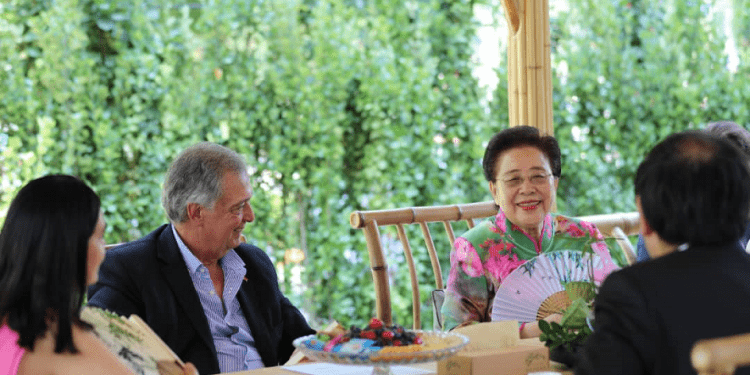A New Era of Cooperation for Sustainable Agriculture and Trade Between Uruguay and China
In a recent landmark meeting, Uruguayan Minister Fernando Mattos and Director of International Affairs Adriana Lupinacci discussed future projects with Jiang Zehui, the Co-President of the International Bamboo and Rattan Organization (INBAR). This meeting marks a significant moment for Uruguay as it officially became the 51st member of INBAR through the enactment of Law 20.294. This article explores the details of this cooperation, the potential projects on the horizon, and the broader implications for both countries.
Uruguay Joins the International Bamboo and Rattan Organization
On July 9, 2024, Uruguay took a major step in its international agricultural relations by becoming a member of INBAR, a global platform dedicated to the sustainable use of bamboo and rattan. The move was formalized with the recent approval of Law 20.294, which allows Uruguay to engage in collaborative efforts with other member countries to advance the use of bamboo and rattan in various applications.
Minister Mattos and Director Lupinacci met with Jiang Zehui to celebrate Uruguay’s membership and discuss future cooperative ventures. Jiang Zehui expressed enthusiasm for Uruguay’s participation, highlighting the potential for impactful collaborations in the field of sustainable materials and environmental conservation.
Exploring Future Projects: Bamboo as a Sustainable Resource
One of the primary focuses of this new partnership will be the development of projects that utilize bamboo as a viable alternative to conventional materials. Bamboo is known for its rapid growth and versatility, making it an excellent candidate for numerous applications:
- Plastic Substitution: One of the proposed projects involves researching the use of bamboo as a substitute for plastic products. This initiative aims to reduce plastic waste and promote environmentally friendly materials. By developing bamboo-based products, Uruguay and China hope to offer sustainable alternatives to single-use plastics and other non-biodegradable materials.
- Research and Development: The collaboration will include joint research efforts to explore new uses for bamboo and rattan. These efforts will focus on innovative applications such as building materials, furniture, and textiles. The goal is to harness the full potential of these materials to address global sustainability challenges.

Upcoming Events and Further Collaborations
In October 2024, INBAR representatives, including Jiang Zehui, will visit Uruguay as part of a South American tour. This visit will provide an opportunity for both parties to finalize project details, explore new avenues for cooperation, and strengthen bilateral relationships.
During their visit, the Uruguayan officials also met with New Hope Group, a major importer of dairy products and other goods. Minister Mattos invited New Hope Group to expand its business with Uruguay, suggesting that they consider increasing the import of Uruguayan products such as powdered milk and exploring new trade opportunities for beef, mutton, and offal.
The New Hope Group expressed interest in these proposals, recognizing the potential for mutual benefits and economic growth. The discussion included the possibility of investing in Uruguay’s agricultural sector and enhancing trade relations between the two countries.
The Broader Impact of the Uruguay-China Cooperation
Uruguay’s membership in INBAR and the upcoming projects represent a significant opportunity for both countries. For Uruguay, it opens doors to international expertise and support in the field of sustainable agriculture. For China, it provides a platform for expanding its global influence in the bamboo and rattan sectors.
The collaboration also reflects a growing global trend towards sustainable practices and the exploration of innovative materials. By working together, Uruguay and China aim to address environmental challenges, promote economic development, and foster international cooperation.






